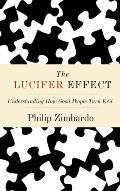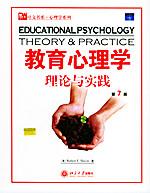
This classic text emphasizes the science of psychology, with a special focus on applying that science to students' daily lives. Sensation, Perception, Biology, Motivation, Emotion, Development, Heath, Cognition, Intelligence, Learning, Memory, Personality, Stress, Social Psychology, History of Psychology,Research Methods, Disorders and treatments. Intro to Psych.
如何购买
- Hardcover:704 pages
- Publisher:Allyn & Bacon; 17 edition (May 14, 2004)
- Language:English
- ISBN-10:020541799X
- ISBN-13:978-0205417995
- Product Dimensions:11 x 8.7 x 1.2 inches
- List Price: $119.87
Description
This classic text emphasizes the science of psychology, with a special focus on applying that science to students' daily lives.
Psychology and Life continues to provide a rigorous, research-centered survey of the discipline while offering students special features and learning aids that will spark their interest and excite their imaginations. The eighteenth edition, which has been thoroughly updated to reflect the latest cutting-edge research, features an increased emphasis on critical thinking, new practice tests at the end of each chapter, a beautiful new design and an updated art program.
Psychology and Life is the premiere text accompanying the Discovering Psychology Telecourse Series. A telecourse faculty guide and study guide to tie the videos to the textbook are available through Allyn & Bacon.
Author
Richard J. Gerrig is a professor of psychology at Stony Brook University. Before joining the Stony Brook faculty, Gerrig taught at Yale University, where he was awarded the Lex Hixon Prize for teaching excellence in the social sciences. Gerrig’s research on cognitive psychological aspects of language use has been widely published. One line of work examines the mental processes that underlie efficient communication. A second research program considers the cognitive and emotional changes readers experience when they are transported to the worlds of stories. His book Experiencing Narrative Worlds was published by Yale University Press. Gerrig is a Fellow of both the American Psychological Association and the Association for Psychological Science.He is also an associate editor of Psychonomic Bulletin & Review. Gerrig is the proud father of Alexandra, who at age 16 provides substantial and valuable advice about many aspects of psychology and life in the 21st century. Life on Long Island is greatly enhanced by the guidance and support of Timothy Peterson.
Philip G. Zimbardo is an emeritus professor of psychology at Stanford University, where he has taught since 1968, after earlier teaching at Yale University, New York University, and Columbia University. He also continues to teach atthe Naval Post Graduate School in Monterey. Zimbardo is internationally recognized as the “voice and face of contemporary psychology” through his widely seen PBS-TV series, Discovering Psychology, his media appearances, best-selling trade books on shyness, and his classic research, The Stanford Prison Experiment. His current research interests are in the domain of experimental social psychology, with a scattered emphasis on everything interesting to study from shyness to time perspective, persuasion, cults, madness, violence, vandalism, political psychology, and terrorism. Zimbardo has been a prolific, innovative researcher across a number of fields in social and general psychology, with more than 300 professional articles and chapters and 50 books to his credit. To recognize the breadth of his research achievements, the American Psychological Association presented Zimbardo with the Ernest Hilgard Award for lifetime contributions to general psychology. He has also won the Vaclav Havel Foundation Award for his body of research on the human condition. Zimbardo has been President of the Western Psychological Association (twice), President of the American Psychological Association, Chair of the Council of Scientific Society Presidents (CSSP), and now Chair of the Western Psychological Foundation and Director of the Center for Interdisciplinary Policy, Education, and Research on Terrorism. He is most excited about the publication of his new trade book in March 2007 (Random House), which he has been working on intensely for the past several years. Its domain is the psychology of evil; its provocative title: “The Lucifer Effect: Understanding How Good People Turn Evil.”
Contents
Table of Contents:
1. PSYCHOLOGY AND LIFE
WHAT MAKES PSYCHOLOGY UNIQUE?
Definitions
The Goals of Psychology
PSYCHOLOGY IN YOUR LIFE: CAN PSYCHOLOGY HELP FIND ME A CAREER?
THE EVOLUTION OF MODERN PSYCHOLOGY
Psychology’s Historical Foundations
Current Psychological Perspectives
CRITICAL THINKING IN YOUR LIFE: WHY DO FRIENDSHIPS END?
WHAT PSYCHOLOGISTS DO
HOW TO USE THIS BOOK
Study Strategies
Study Techniques
Special Features
RECAPPING MAIN POINTS
KEY TERMS
2. RESEARCH METHODS IN PSYCHOLOGY
THE PROCESS OF RESEARCH
Observer Biases and Operational Definitions
Experimental Methods: Alternative Explanations and the Need for Controls
Correlational Methods
Subliminal Influence?
PSYCHOLOGY IN YOUR LIFE: CAN SURVEY RESEARCH AFFECT YOUR ATTITUDES?
PSYCHOLOGICAL MEASUREMENT
Achieving Reliability and Validity
Self-Report Measures
Behavioral Measures and Observations
ETHICAL ISSUES IN HUMAN AND ANIMAL RESEARCH
Informed Consent
Risk/Gain Assessment
Intentional Deception
Debriefing
Issues in Animal Research
BECOMING A WISER RESEARCH CONSUMER
CRITICAL THINKING IN YOUR LIFE: HOW CAN YOU EVALUATE PSYCHOLOGICAL INFORMATION ON THE WEB?
RECAPPING MAIN POINTS
KEY TERMS
STATISTICAL SUPPLEMENT
UNDERSTANDING STATISTICS: ANALYZING DATA AND FORMING CONCLUSIONS
ANALYZING THE DATA
DESCRIPTIVE STATISTICS
INFERENTIAL STATISTICS
BECOMING A WISE CONSUMER OF STATISTICS
KEY TERMS
3. THE BIOLOGICAL AND EVOLUTIONARY BASES OF BEHAVIOR
HEREDITY AND BEHAVIOR
Evolution and Natural Selection
Variation in the Human Genotype
THE NERVOUS SYSTEM IN ACTION
The Neuron
Action Potentials
Synaptic Transmission
Neurotransmitters and Their Functions
BIOLOGY AND BEHAVIOR
Eavesdropping on the Brain
The Nervous System
Brain Structures and Their Functions
Hemispheric Lateralization
The Endocrine System
Plasticity and Neurogenesis: Our Changing Brains
CRITICAL THINKING IN YOUR LIFE: WHAT DOES “IT’S GENETIC” MEAN?
PSYCHOLOGY IN YOUR LIFE: WHY DOES MUSIC HAVE AN IMPACT ON HOW YOU FEEL?
RECAPPING MAIN POINTS
KEY TERMS
4. SENSATION AND PERCEPTION
SENSING, ORGANIZING, IDENTIFYING, AND RECOGNIZING
The Proximal and Distal Stimuli
Reality, Ambiguity, and Illusions
SENSORY KNOWLEDGE OF THE WORLD
Psychophysics
From Physical Events to Mental Events
THE VISUAL SYSTEM
The Human Eye
The Pupil and the Lens
The Retina
Processes in the Brain
Seeing Color
CRITICAL THINKING IN YOUR LIFE: CAN TECHNOLOGY RESTORE SIGHT?
HEARING
The Physics of Sound
Psychological Dimensions of Sound
The Physiology of Hearing
YOUR OTHER SENSES
Smell
Taste
Touch and Skin Senses
The Vestibular and Kinesthetic Senses
Pain
ORGANIZATIONAL PROCESSES IN PERCEPTION
Attentional Processes
Principles of Perceptual Grouping
Spatial and Temporal Integration
Motion Perception
Depth Perception
Perceptual Constancies
PSYCHOLOGY IN YOUR LIFE: WHY IS EATING “HOT” FOOD PAINFUL?
IDENTIFICATION AND RECOGNITION PROCESS
Bottom-Up and Top-Down Processes
The Influence of Contexts and Expectations
Final Lessons
RECAPPING MAIN POINTS
KEY TERMS
5. MIND, CONSCIOUSNESS, AND ALTERNATESTATES
THE CONTENTS OF CONSCIOUSNESS
Awareness and Consciousness
Studying the Contents of Consciousness
THE FUNCTIONS OF CONSCIOUSNESS
The Uses of Consciousness
Studying the Functions of Consciousness
SLEEP AND DREAMS
Circadian Rhythms
The Sleep Cycle
Why Sleep?
Sleep Disorders
Dreams: Theater of the Mind
PSYCHOLOGY IN YOUR LIFE: DO YOU GET ENOUGH SLEEP?
ALTERED STATES OF CONSCIOUSNESS
Lucid Dreaming
Hypnosis
Meditation
Religious Ecstasy
MIND-ALTERING DRUGS
Dependence and Addiction
Varieties of Psychoactive Drugs
CRITICAL THINKING IN YOUR LIFE: DOES ECSTASY HARM THE BRAIN?
RECAPPING MAIN POINTS
KEY TERMS
6. LEARNING AND BEHAVIOR ANALYSIS
THE STUDY OF LEARNING
What Is Learning?
Behaviorism and Behavior Analysis
CLASSICAL CONDITIONING: LEARNING PREDICTABLE SIGNALS
Pavlov’s Surprising Observation
Processes of Conditioning
Focus on Acquisition
Applications of Classical Conditioning
OPERANT CONDITIONING: LEARNING ABOUT CONSEQUENCES
The Law of Effect
Experimental Analysis of Behavior
Reinforcement Contingencies
Properties of Reinforcers
Schedules of Reinforcement
Shaping
PSYCHOLOGY IN YOUR LIFE: HOW DOES CLASSICAL CONDITIONING AFFECT CANCER TREATMENT?
CRITICAL THINKING IN YOUR LIFE: TO SPANK OR NOT TO SPANK
BIOLOGY AND LEARNING
Instinctual Drift
Taste-Aversion Learning
COGNITIVE INFLUENCES ON LEARNING
Animal Cognition
Observational Learning
RECAPPING MAIN POINTS
KEY TERMS
7. MEMORY
WHAT IS MEMORY?
Types of Memories
An Overview of Memory Processes
MEMORY USE FOR THE SHORT-TERM
Iconic Memory
Short-Term Memory
Working Memory
LONG-TERM MEMORY: ENCODING AND RETRIEVAL
Retrieval Cues
Context and Encoding
The Processes of Encoding and Retrieval
Why We Forget
Improving Memory for Unstructured Information
Metamemory
CRITICAL THINKING IN YOUR LIFE: HOW CAN MEMORY RESEARCH HELP YOU PREPARE FOR EXAMS?
STRUCTURES IN LONG-TERM MEMORY
Memory Structures
Remembering as a Reconstructive Process
BIOLOGICAL ASPECTS OF MEMORY
Searching for the Engram
Amnesia
Brain Imaging
PSYCHOLOGY IN YOUR LIFE: WHY DOES ALZHEIMER’S DISEASE
AFFECT MEMORY?
RECAPPING MAIN POINTS
KEY TERMS
8. COGNITIVE PROCESSES
STUDYING COGNITION
Discovering the Processes of Mind
Mental Processes and Mental Resources
LANGUAGE USE
Language Production
Language Understanding
Language and Evolution
Language, Thought, and Culture
PSYCHOLOGY IN YOUR LIFE: WHY AND HOW DO PEOPLE LIE?
VISUAL COGNITION
Using Visual Representations
Combining Verbal and Visual Representations
PROBLEM SOLVING AND REASONING
Problem Solving
Deductive Reasoning
Inductive Reasoning
JUDGMENT AND DECISION MAKING
Heuristics and Judgment
The Psychology of Decision Making
CRITICAL THINKING IN YOUR LIFE: CAN POLITICAL EXPERTS PREDICT THE FUTURE?
RECAPPING MAIN POINTS
KEY TERMS
9. INTELLIGENCE AND INTELLIGENCE ASSESSMENT
WHAT IS ASSESSMENT?
History of Assessment
Basic Features of Formal Assessment
INTELLIGENCE ASSESSMENT
The Origins of Intelligence Testing
IQ Tests
Extremes of Intelligence
THEORIES OF INTELLIGENCE
Psychometric Theories of Intelligence
Sternberg’s Triarchic Theory of Intelligence
Gardner’s Multiple Intelligences and Emotional Intelligence
CRITICAL THINKING IN YOUR LIFE: CAN YOU TRUST ASSESSMENT ON THE WEB?
PSYCHOLOGY IN YOUR LIFE: DO THEORIES OF INTELLIGENCE MATTER?
THE POLITICS OF INTELLIGENCE
The History of Group Comparisons
Heredity and IQ
Environments and IQ
Culture and the Validity of IQ Tests
CREATIVITY
Assessing Creativity and the Link to Intelligence
Extremes of Creativity
ASSESSMENT AND SOCIETY
RECAPPING MAIN POINTS
KEY TERMS
10. HUMAN DEVELOPMENT ACROSS THE LIFE SPAN
STUDYING DEVELOPMENT
PHYSICAL DEVELOPMENT ACROSS THE LIFE SPAN
Prenatal and Childhood Development
Physical Development in Adolescence
Physical Changes in Adulthood
COGNITIVE DEVELOPMENT ACROSS THE LIFE SPAN
Piaget’s Insights Into Mental Development
Contemporary Perspectives on Early Cognitive Development
Cognitive Development in Adulthood
PSYCHOLOGY IN YOUR LIFE: WILL YOUR BRAIN WORK DIFFERENTLY AS YOU AGE?
ACQUIRING LANGUAGE
Perceiving Speech and Perceiving Words
Learning Word Meanings
Acquiring Grammar
SOCIAL DEVELOPMENT ACROSS THE LIFE SPAN
Erikson’s Psychosocial Stages
Social Development in Childhood
Social Development in Adolescence
Social Development in Adulthood
CRITICAL THINKING IN YOUR LIFE: HOW DOES DAY CARE AFFECT CHILDREN’S DEVELOPMENT?
SEX AND GENDER DIFFERENCES
Sex Differences
Gender Identity and Gender Roles
MORAL DEVELOPMENT
Kohlberg’s Stages of Moral Reasoning
Gender and Cultural Perspectives on Moral Reasoning
LEARNING TO AGE SUCCESSFULLY
RECAPPING MAIN POINTS
KEY TERMS
11. MOTIVATION
UNDERSTANDING MOTIVATION
Functions of Motivational Concepts
Sources of Motivation
A Hierarchy of Needs
EATING
The Physiology of Eating
The Psychology of Eating
PSYCHOLOGY IN YOUR LIFE: HOW DOES GENETICS CONTRIBUTE TO OBESITY?
SEXUAL BEHAVIORS
Nonhuman Sexual Behaviors
Human Sexual Arousal and Response
The Evolution of Sexual Behaviors
Sexual Norms
Homosexuality
MOTIVATION FOR PERSONAL ACHIEVEMENT
Need for Achievement
Attributions for Success and Failure
Work and Organizational Psychology
CRITICAL THINKING IN YOUR LIFE: HOW DOES MOTIVATION AFFECT ACADEMIC ACHIEVEMENT?
RECAPPING MAIN POINTS
KEY TERMS
12. EMOTION, STRESS, AND HEALTH
EMOTIONS
Basic Emotions and Culture
Theories of Emotion
Functions of Emotions
PSYCHOLOGY IN YOUR LIFE: WHY ARE SOME PEOPLE HAPPIER THAN OTHERS?
STRESS OF LIVING
Physiological Stress Reactions
Psychological Stress Reactions
Coping with Stress
Positive Effects of Stress
HEALTH PSYCHOLOGY
The Biopsychosocial Model of Health
Health Promotion
Treatment
Personality and Health
Job Burnout and the Health-Care System
A Toast to Your Health
CRITICAL THINKING IN YOUR LIFE: CAN HEALTH PSYCHOLOGY HELP YOU BE A HEALTHY PERSON BY 2010?
RECAPPING MAIN POINTS
KEY TERMS
13. UNDERSTANDING HUMAN PERSONALITY
TYPE AND TRAIT PERSONALITY THEORIES
Categorizing by Types
Describing with Traits
Traits and Heritability
Do Traits Predict Behaviors?
Evaluation of Type and Trait Theories
PSYCHODYNAMIC THEORIES
Freudian Psychoanalysis
Evaluation of Freudian Theory
Extending Psychodynamic Theories
PSYCHOLOGY IN YOUR LIFE: WHY ARE SOME PEOPLE SHY?
HUMANISTIC THEORIES
Features of Humanistic Theories
Evaluation of Humanistic Theories
SOCIAL-LEARNING AND COGNITIVE THEORIES
Mischel’s Cognitive-Affective Personality Theory
Bandura’s Cognitive Social-Learning Theory
Cantor’s Social Intelligence Theory
Evaluation of Social-Learning and Cognitive Theories
SELF THEORIES
Dynamic Aspects of Self-Concepts
Self-Esteem and Self-Presentation
The Cultural Construction of Self
Evaluation of Self Theories
COMPARING PERSONALITY THEORIES
CRITICAL THINKING IN YOUR LIFE: WHO ARE YOU ON THE INTERNET?
ASSESSING PERSONALITY
Objective Tests
Projective Tests
RECAPPING MAIN POINTS
KEY TERMS
14. PSYCHOLOGICAL DISORDERS
THE NATURE OF PSYCHOLOGICAL DISORDERS
Deciding What Is Abnormal
The Problem of Objectivity
Classifying Psychological Disorders
The Etiology of Psychopathology
ANXIETY DISORDERS
Generalized Anxiety Disorder
Panic Disorder
Phobias
Obsessive-Compulsive Disorder
Posttraumatic Stress Disorder
Causes of Anxiety Disorders
MOOD DISORDERS
Major Depressive Disorder
Bipolar Disorder
Causes of Mood Disorders
Gender Differences in Depression
Suicide
PSYCHOLOGY IN YOUR LIFE: HOW CAN WE PINPOINT INTERACTIONS OF NATURE AND NURTURE?
PERSONALITY DISORDERS
Borderline Personality Disorder
Antisocial Personality Disorder
SOMATOFORM AND DISSOCIATIVE DISORDERS
Somatoform Disorders
Dissociative Disorders
SCHIZOPHRENIC DISORDERS
Major Types of Schizophrenia
Causes of Schizophrenia
CRITICAL THINKING IN YOUR LIFE: IS “INSANITY” REALLY A DEFENSE?
PSYCHOLOGICAL DISORDERS OF CHILDHOOD
Attention-Deficit Hyperactivity Disorder
Autistic Disorder
THE STIGMA OF MENTAL ILLNESS
RECAPPING MAIN POINTS
KEY TERMS
15. THERAPIES FOR PSYCHOLOGICAL DISORDERS
THE THERAPEUTIC CONTEXT
Goals and Major Therapies
Therapists and Therapeutic Settings
Historical Perspectives on Institutional Treatment
PSYCHODYNAMIC THERAPIES
Freudian Psychoanalysis
Later Psychodynamic Therapies
PSYCHOLOGY IN YOUR LIFE: ARE LIVES HAUNTED BY REPRESSED MEMORIES?
BEHAVIOR THERAPIES
Counterconditioning
Contingency Management
Social-Learning Therapy
Generalization Techniques
COGNITIVE THERAPIES
Changing False Beliefs
Cognitive Behavioral Therapy
HUMANISTIC THERAPIES
Client-Centered Therapy
Gestalt Therapy
GROUP THERAPIES
Couple and Family Therapy
Community Support Groups
BIOMEDICAL THERAPIES
Drug Therapy
Psychosurgery
EC and rTMS
CRITICAL THINKING IN YOUR LIFE: DOES THERAPY AFFECT BRAIN ACTIVITY?
TREATMENT EVALUATION AND PREVENTION STRATEGIES
Evaluating Therapeutic Effectiveness
Prevention Strategies
RECAPPING MAIN POINTS
KEY TERMS
16. SOCIAL COGNITION AND RELATIONSHIPS
CONSTRUCTING SOCIAL REALITY
The Origins of Attribution Theory
The Fundamental Attribution Error
Self-Serving Biases
Expectations and Self-Fulfilling Prophecies
Behaviors That Confirm Expectations
ATTITUDES, ATTITUDE CHANGE, AND ACTION
Attitudes and Behaviors
Processes of Persuasion
Persuasion by Your Own Actions
Compliance
CRITICAL THINKING IN YOUR LIFE: DO LATE-NIGHT TV ADS REALLY WORK?
PREJUDICE
Origins of Prejudice
Effects of Stereotypes
Reversing Prejudice
SOCIAL RELATIONSHIPS
Liking
Loving
PSYCHOLOGY IN YOUR LIFE: CAN LASTING RELATIONSHIPS FORM ON THE INTERNET?
RECAPPING MAIN POINTS
KEY TERMS
17. SOCIAL PROCESSES, SOCIETY, AND CULTURE
THE POWER OF THE SITUATION
Roles and Rules
Social Norms
Conformity
Decision Making in Groups
Situational Power: Candid Camera Revelations
ALTRUISM AND PROSOCIAL BEHAVIOR
The Roots of Altruism
Motives for Prosocial Behavior
The Effects of the Situation of Prosocial Behavior
CRITICAL THINKING IN YOUR LIFE: HOW CAN YOU GET PEOPLE TO VOLUNTEER?
AGGRESSION
Evolutionary Perspectives
Individual Differences
Situational Influences
Cultural Constraints
THE PSYCHOLOGY OF CONFLICT AND PEACE
Obedience to Authority
The Psychology of Genocide and War
Peace Psychology
A PERSONAL ENDNOTE
PSYCHOLOGY IN YOUR LIFE: HOW MIGHT RECONCILIATION BE POSSIBLE?
RECAPPING MAIN POINTS
KEY TERMS
Features
How familiar are your students with the scientific process? How do you get students to understand that psychology is arigorous science?
An important goal ofPsychology and Lifeis to teach the scientific basis of psychological reasoning. Within each chapter we integrate directly into the text descriptions of classic and cutting edge research studies, identified by a vertical blue line next to the text, that showcase thehowandwhybehind key psychological research.
These research studies include:
- plasticity in the visual cortex of adult rats;
- the impact of meditation on brain structure;
- the impact of culture on judgments of which category members are typical, the impact of emotions on memory for visual details;
- individual differences in intimacy goals;
- family therapy for children’s anxiety disorders;
- cross-cultural differences in cognitive dissonance; and
- genetic influences on physical and social aggression.
To keepPsychology and Lifeon the cutting edge of psychological science, we have also expanded coverage of cognitive neuroscience throughout the book and included new MRI photos in several chapters.
Do your students ask themselves: "Why am I here? When will I use this information?" How do you motivate them to see that psychology is a dynamic, relevant discipline?
Psychology in Your Life sections show students how psychological knowledge is directly relevant to the decisions they make every day by presenting and exploring questions posed by psychology students around the U.S. Psychology in Your Life topics include:
- Why Does Music Have An Impact on How You Feel? (Chapter 3)
- Do You Get Enough Sleep? (Chapter 5)
- Do Theories of Intelligence Matter? (Chapter 9)
- Will Your Brain Work Differently as You Age? (Chapter 10)
- Why Are Some People Happier than Others? (Chapter 12)
- How Might Reconciliation Be Possible? (Chapter 17)
How are your students’ critical thinking skills? Do you find yourself in the position of having to "unteach" some of the notions about psychology they may have acquired through the popular media?
Recognizing that students quite often have acquired partial or even incorrect understandings of psychological concepts from the popular media, we have created a new feature we call Critical Thinking in Your Life in which we seek to confront students directly with the experimental basis of critical conclusions to teach them how to interpret and evaluate what they hear in the media and become wiser consumers of the abundance of research studies and surveys cited. Critical Thinking in Your Life topics include:
- How Can You Evaluate Psychological Information on the Web? (Chapter 2)
- What Does “It’s Genetic” Mean? (Chapter 3)
- Can Technology Restore Sight? (Chapter 4)
- Can Political Experts Predict the Future? (Chapter 8)
- Can You Trust Assessment on the Web? (Chapter 9)
- Can Health Psychology Help You Be a Healthy Person by 2010? (Chapter 12
We also reinforce critical thinking skills in several other ways:
- Critical Thinking questions with every Stop and Review box (at the end of each major chapter section) (p. 220)
- Probing questions paired with photos and figures (p. 226)
- Essay questions at the end of each chapter. (p. 233)
Are you looking for a text with strong coverage of social psychology?
We cover social psychology in two chapters. Chapter 16,Social Cognition and Relationships, covers classic and contemporary social psychological research on social cognition and relationships. In chapter 17,Social Processes, Society, and Culture, we show students how psychology influences public policy and how psychologists participate responsibly in society. We include current research in social behavior in a cross-cultural perspective, moral judgments, aggression and prejudice, authority influences, and political and peace psychology.
How do you keep your brightest students motivated without leaving other students behind?
Psychology and Lifehas maintained a reputation for presenting the science of psychology in a way that is challenging, yet accessible, to a broad range of students. To enhance students’ experience with the book, we include several pedagogical features:
- Stop and Review.This feature appears at the end of every major section and provides students with thought-provoking questions to test their mastery of material before moving on.
- NEW! Practice Test.Each chapter concludes with a practice test with multiple choice questions based on the material in both the main text and the boxes. In addition, we’ve provided sample essay questions that allow students to think more broadly about the content of each chapter. Multiple choice answers can be found in the Answer Appendix, and essay question suggested answers can be found in the Instructor’s Manual.
- Recapping Main Points.Each chapter concludes with a chapter summary,Recapping Main Points,which summarizes the chapter content and is organized according to major section headings.
- Key Terms.Key terms are boldfaced in the text as they appear and are listed, with page references, at the end of each chapter for quick review.
Do any of your students respond better to instruction that incorporates video, online animations and simulations, and self-directed study? Are you looking for an online instructional and learning tool that has been proven to work?
For over three years, MyPsychLab has been increasing student success in the classroom and providing instructors with every resource needed to teach and administer an introductory psychology course. For fall 2007, MyPsychLab is undergoing a revolutionary makeover to make it more powerful and useful than ever.
As with the current version of MyPsychLab, the new MyPsychLab will offer self-administered Pre- and Post-tests tied to an adaptive Study Plan help students zero in on the topics that they need to study further. Students will continue to have access to a wide array of simulations, animations, video clips, audio explanations, activities, controlled assessments, and profiles of prominent psychologists, all organized around an e-Book that is identical to the print textbook, to expand upon the key topics students encounter as they read the text.
The new MyPsychLab also features a new, powerful assessment engine with a wider range of automatically graded question types such as text match and hot-spot multiple response, and test items that include item analysis data such as the percentage of students (both within the instructor’s course and nationally) who have answered a particular question correctly and what the most frequently chosen wrong answer. Instructors can choose to deliver assessments in a wider variety of ways, including homework format, online quiz format, or print format.
Visitwww.mypsychlab.comto learn more about MyPsychLab.











最新评论